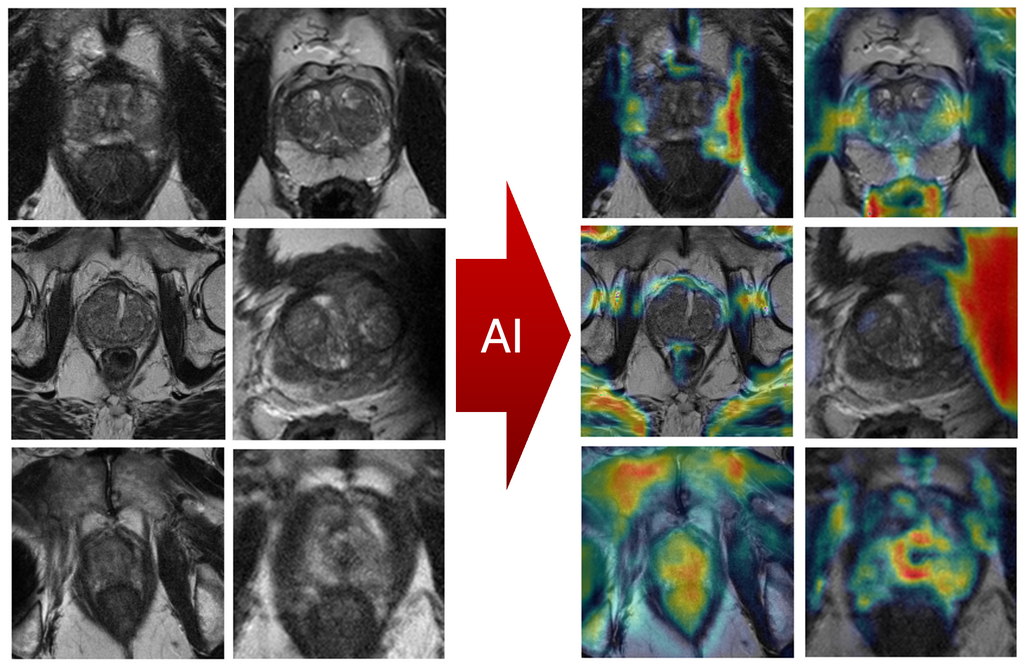
Clinical Problem
Each year, more than one million men worldwide receive a prostate cancer diagnosis, making it one of the most common cancers among men. Prostate cancer is generally diagnosed through a combination of radiological and histopathological images, such as MRI and high-resolution microscopy images of prostate specimens. In recent years, several deep learning models have emerged for automated prostate cancer diagnosis on either of these modalities. Ample scientific evidence shows that creating AI with enough well-curated data and clinically relevant benchmarks can create AI that outperforms clinical practice. Implementing this superior AI has been repeatedly shown to improve clinical practice efficiency and accuracy. Why are we not creating and implementing superior AI? Causes are manifold. One of these causes is limited, low-quality data. We are currently advancing in methods that can automatically annotate images with LLMs that read reports and, with the help of diagnostic AI, can automatically annotate data. We also work on automated quality assessment and image sorting. The goal is to automate a lot of the manual work involved in developing AI so that it can scale to the 1000s of images available not just for the prostate but for AI in general.
Solutions
This master's project involves working on various aspects of this automated AI development pipeline. You will be embedded in diagnijmegen.nl, where over 80 PhD candidates are working on developing AI in collaboration with master students and visiting scholars. We have gathered data from 30.000 prostate cancer patients with their corresponding in vivo MRI, their radiology and pathology reports, and eventual outcomes. The primary objective of the project will be to develop and validate a pipeline for automated development of AI for prostate cancer. Within this project, you will have the opportunity to work with cutting-edge deep learning methods: multimodal LLM, Retrieval augmented generation (RAG), AI governance and much more.
Tasks
- Develop and validate a pipeline for automated development of AI.
Requirements
Master students with a major in computer science, mathematics, biomedical engineering, artificial intelligence, physics, or a related area in the final stage of master's studies are invited to apply. - Experience with programming in Python. - Experience/interest in deep learning, medical imaging, and medical image analysis.
Practical Information
- Project duration: 6-12 months
- Location: Radboud University Medical Center, Nijmegen
- For more information, please contact Tiago Coelho

